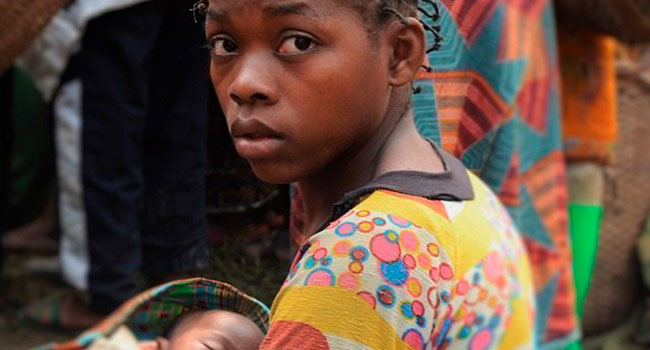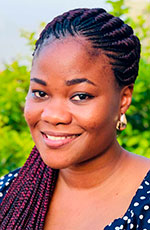Newly graduated nursing PhD Oluwakemi Amodu is building on the work she did during her doctoral program at the University of Alberta to make life better for 250 women in a refugee camp in northern Nigeria.
Amodu won a $75,000 post-doctoral fellowship at the University of Waterloo for a project to bring education and treatment for sexually transmitted infections (STIs) to the camp.
“These women face many barriers to medical care, from not knowing why they experience these infections or how they are transmitted, to not being able to afford transportation costs to get to services in town,” Amodu said.
The research project will provide educational workshops, screening and treatment by Hausa-speaking gynecologists and nurses, and will follow the women for 10 months to understand the impact on their reproductive health.
“We want to see how science-informed health education can help improve perceptions and uptake of STI treatment amongst women who have been displaced,” Amodu said.
Amodu’s drive to improve women’s health began when, as a young RN, she volunteered to work in rural communities and saw first-hand the suffering of the million-plus northern Nigerian women who struggle to access perinatal care.
“Health-care access is poor in Nigeria, but I realized that these women especially have challenges with getting the care they need,” she said.
“That’s where my passion started – I believe that women’s health and well-being is really important for the whole family.”
Amodu, now 31, decided to pursue graduate studies. Always a strong student, she had her pick of programs to attend, ultimately choosing the U of A over Yale based on the strength of the Faculty of Nursing’s teaching staff and its strong international ranking.
While at U of A, Amodu received the Women and Children’s Health Research Institute Graduate Studentship Award funded through the Royal Alexandra Hospital Foundation and the International Development Research Center Doctoral Award.
She also won the U of A’s Three-Minute Thesis Competition in 2016 for her master’s thesis presentation on obstetric fistula, a postpartum complication experienced by two million women worldwide. She tells the story of 13-year old Wosilat, who is married to a 45-year-old man. Wosilat becomes pregnant but after two days of labour at home alone, her baby is born dead. She develops obstetric fistula, a hole between the vagina and the bladder or bowel wall leading to uncontrolled leakage of urine and sometimes feces into the vagina.
“Oftentimes family and communities abandon these girls,” Amodu explained. “They experience unspeakable shame and isolation. It has huge mental health implications, so much that some resort to suicide.”
For her doctoral thesis, Amodu studied the structural gaps that lead to unequal access to health care for women like Wosilat, specifically those who have been displaced by the Boko Haram crisis in northern Nigeria and are now facing serious health access constraints. Her policy recommendations to the Nigerian government included setting up a special task force to address poor governance of the primary health-care sector and improve co-ordination of services.
Amodu explained that her time as a student at the U of A has given her a new perspective on how she can make a difference.
“The wide range of research opportunities I had at the U of A enabled me to evolve my thinking around my passion for women’s health,” Amodu said. “I moved from simply wanting to take action to help others, which is the nature of nurses, to understanding that research can drive transformation.”
Amodu hopes what’s learned from her STI project can benefit not just other vulnerable women in Nigeria, but also others across the continent.
“By working collaboratively with development agencies on the ground, my goal is to expand these ideas to the broader population in Nigeria and across Africa.”
| By Gillian Rutherford
This article was submitted by the University of Alberta’s online publication Folio, a Troy Media content provider partner.
The views, opinions and positions expressed by columnists and contributors are the author’s alone. They do not inherently or expressly reflect the views, opinions and/or positions of our publication.



